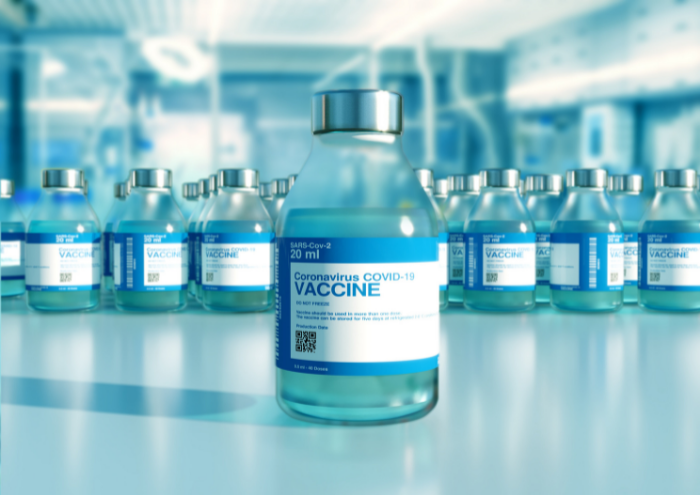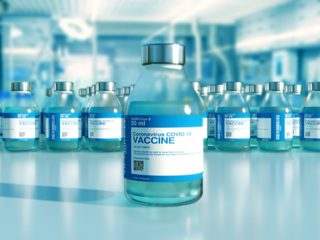What's the latest evidence regarding COVID-19 vaccines and blood cancer?
Lots of information continues to circulate about COVID-19 and vaccinations for immunocompromised people. Blood Cancer UK’s Healthcare Professional Advisory Panel (HPAP), made up of specialists from across the UK working in haemato-oncology and related professional fields, has released the statement below to help you understand the latest evidence.

Statement on COVID-19 vaccines & blood cancer – Spring 2024
10 May 2024
"People with blood cancer should continue to take up COVID-19 vaccines when offered through seasonal programmes as it protects them from serious illness and hospitalisation.
"Like all drugs, vaccines have potential side effects but the current evidence indicates that for people with immunosuppression caused by blood cancer, including leukaemia, lymphoma, myeloma, MDS and MPN, or its treatments, the additional protection provided by COVID-19 vaccines is very likely to outweigh the small risk of side effects or complications. The QResearch study found no evidence that people with blood cancer were at an increased risk of side effects after vaccination compared with the general population.
"While we know that some people with weakened immune systems have historically had a reduced immune response to COVID-19 vaccines, the MELODY study showed that an increasing number of vaccine doses contributed to higher rates of COVID-19 antibody presence in people with weakened immune systems. People with the blood cancer lymphoma were included in this study. We also know that COVID-19 vaccines can induce protective T-cell responses even in patients who don’t make antibodies effectively.
"The QResearch study also showed that continuing to have doses of COVID-19 vaccines is important for people with blood cancer to maintain their immunity. Repeat vaccination is important because COVID-19 vaccines are updated seasonally so that they are more effective against current or recently circulating variants of the virus, much like flu vaccines.
"Ongoing studies are looking to understand individual and disease group COVID-19 risk so that in the future, protective measures like vaccinations can be targeted to those with types and sub-types of blood cancer at the highest risk, if differences are found.
"We are aware that claims have been made about a link between COVID-19 vaccines and cancer. There are no controlled, large-scale studies (studies with the most robust scientific evidence) that demonstrate an increased cancer risk following COVID-19 vaccination.
"If you are at all worried or have questions about getting a COVID-19 vaccination, please speak to your blood cancer care team or reach out to Blood Cancer UK’s Support Services on 0808 2080 888."
Signed:
Prof Adrian Bloor, Consultant Haematologist at The Christie, Honorary Clinical Chair, University of Manchester, Blood Cancer UK HPAP Co-Chair
Prof Andrew Pettitt, Professor and Honorary Consultant in Haemato-Oncology, University of Liverpool and Clatterbridge Cancer Centre; Blood Cancer UK HPAP Co-Chair
On behalf of the Blood Cancer UK Healthcare Professionals Advisory Panel (HPAP), a panel made up of specialists from across the UK working in haemato-oncology and related professionals.
This statement is also supported by colleagues from the STRAVINKSY study:
Prof Alex Richter, Professor of Clinical Immunology, University of Birmingham
Dr Sean Lim, Associate Professor in Haematological Oncology, University of Southampton
Dr Michelle Willicombe, Imperial College
Prof Eleanor Barnes, University of Oxford
How to get your Spring Covid-19 vaccine
Spring COVID-19 vaccines are available to people with blood cancer across the UK until 30 June 2024. To find out how to get a vaccine where you live and to learn more about eligibility, visit this page on our website.

Covid vaccines and boosters for people with blood cancer
Find out how many covid vaccinations you should have, and how to get them.
